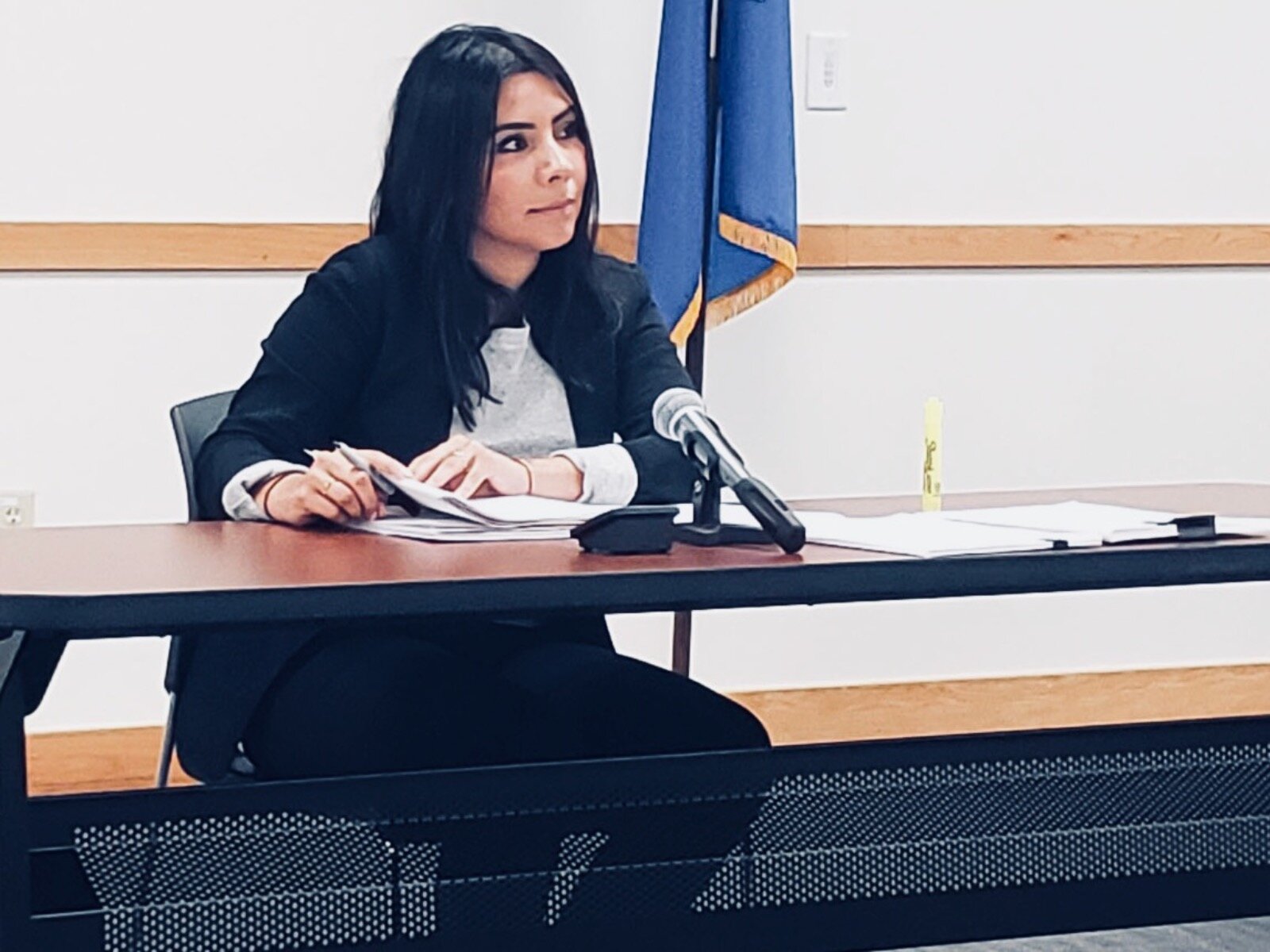After a stormy 11 months in office, Griselda Aldrete says she’s walking away on her own terms.
The outgoing executive director of the Fire and Police Commission, who has been a lightning rod for controversy, said in an interview with NNS that she’s proud of her tenure.
"I came in with the bold attitude of being willing to make changes," she said last week. "In my tenure, I was always a professional, and I’ve been diligent about empowering my staff."
Aldrete, the first Latina to lead the commission, which oversees all aspects of Milwaukee Fire Department and Milwaukee Police Department operations, said she had the votes to be reappointed.
Yet she withdrew her name from consideration the day before a decision from the Common Council was scheduled on July 7.
"The climate at City Hall today sadly puts a premium on political point-scoring and conflict," she wrote in her resignation letter to Mayor Tom Barrett, members of the Common Council and members of the Fire and Police Commission. "This state of affairs presages a confirmation hearing based on spectacle, not merit."
Aldrete, who was nominated by Barrett in July 2019, has faced a steady stream of criticism from her staff as well as community leaders.
Longtime FPC investigator Cheryl Patane resigned in December and wrote a scathing letter taking Aldrete, among others, to task for allegedly creating a hostile work environment and for "demonstrating a frightening ignorance of FPC operations."
Then there was the ACLU’s "stop-and-frisk" lawsuit against the city, which placed pressure on the FPC to improve oversight of the police department, meet regularly with the Community Collaborative Committee and improve hiring processes, among other tasks.
Others accused her of failing to meet regularly with community leaders, a criticism that preceded her confirmation as executive director in August.
"It’s imperative that the Fire and Police Commission be directly connected to the community and not rely on others to find out what the real concerns are in our city," said Jarrett English, during the second of two contentious community listening sessions held by Aldrete before her appointment was approved by the Common Council.
English, at the time a lead organizer for the ACLU who still is involved in community issues, said Aldrete missed several deadlines of the ACLU mandate; hamstrung the FPC by tearing down its structure and losing key employees; and failed to have the experience needed for the role.
"A new leader with new ideas"
Aldrete said her critics are entitled to their opinions. New leaders, she argues, especially those willing to shake the cage, are not always enthusiastically greeted.
"I faced a lot of opposition. I was a new leader with new ideas," she said.
Aldrete argued during the Public Health and Safety Committee hearing in June that she’s reached out to many in the community and has worked diligently to meet with them and get their input despite the challenges presented by COVID-19.
She said much of the criticism she’s faced preceded not only her but also the tenure of her predecessor, La Keisha Butler.
Although she’s been working from day one to address the challenges, Aldrete said she and her team were never given a fair shot.
"People always wanted to focus on who was leaving rather than who was showing up every day," she said. "Politics or not, we have a really strong team that has been working hard for a year, and I’m proud of what we’ve been able to accomplish."
Aldrete, a former nonprofit leader with an extensive background in criminal justice who holds a law degree from Marquette University, said she came in as executive director feeling prepared to lead. Yet, like anyone else, she had things she needed to learn.
"We shouldn’t demonize people for learning or chastise them for making a mistake because they’re learning," she said. "I think when we’re dealing with systemic issues, it’s easy to point the finger at one person."
The future of the FPC
Whoever takes her place will inherit a commission beset with problems, including staff turnover, internal turmoil and the actions of FPC Chairman Steven DeVougas, whom the Milwaukee Ethics Board recently voted unanimously to investigate over alleged ethics codes violations related to his legal representation of prominent developer Kalan Haywood in late 2019.
Haywood was accused of sexual assault and questioned by police at Sojourner Family Peace Center with DeVougas present. He has not been charged with a crime.
In her resignation letter, Aldrete touted her successes. Among them were the investigation of police officer Michael Mattioli, whom the FPC referred disciplinary charges against related to the death of Joel Acevedo in April. Acevedo died after being held in a chokehold by Mattioli, who was off-duty and hosting a party at his house while the stay-at-home order was in effect.
In her letter, Aldrete pointed to other successes, including the investigation of a leaked video involving DeVougas and Haywood; reforming the standard operating procedures for "use of force" by police; and creating the foundation for complying with the ACLU settlement.
Most recently, Aldrete served in the oversight role of the FPC’s six-month review of the job performance of Chief Alfonso Morales, who was given 11 directives he needs to follow to keep his job.
The focus of her remaining time as executive director will be on conducting promotional examinations to fill vacancies for detective, lieutenant and sergeant positions, a process she said hasn’t occurred since 2016; ensuring complaints of citizens are filed and properly addressed; and continuing to comply with the ACLU settlement. Failure to do so could result in renewed legal action from the ACLU in the coming months.
As for how long she will remain at the helm and what she’ll do next, Aldrete said she was taking things day by day.
"I’m leaving it open," she said. "I think the universe always conspires to bring good things to good people."



.jpeg)



